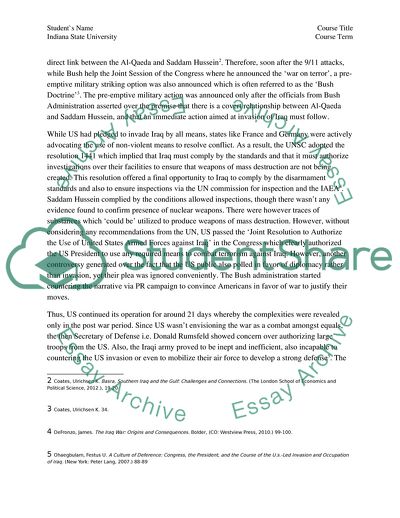Cite this document
(Invasion of Iraq Assignment Example | Topics and Well Written Essays - 2000 words, n.d.)
Invasion of Iraq Assignment Example | Topics and Well Written Essays - 2000 words. https://studentshare.org/history/1841803-the-us-led-invasion-and-occupation-of-iraq-in-2003
Invasion of Iraq Assignment Example | Topics and Well Written Essays - 2000 words. https://studentshare.org/history/1841803-the-us-led-invasion-and-occupation-of-iraq-in-2003
(Invasion of Iraq Assignment Example | Topics and Well Written Essays - 2000 Words)
Invasion of Iraq Assignment Example | Topics and Well Written Essays - 2000 Words. https://studentshare.org/history/1841803-the-us-led-invasion-and-occupation-of-iraq-in-2003.
Invasion of Iraq Assignment Example | Topics and Well Written Essays - 2000 Words. https://studentshare.org/history/1841803-the-us-led-invasion-and-occupation-of-iraq-in-2003.
“Invasion of Iraq Assignment Example | Topics and Well Written Essays - 2000 Words”. https://studentshare.org/history/1841803-the-us-led-invasion-and-occupation-of-iraq-in-2003.


